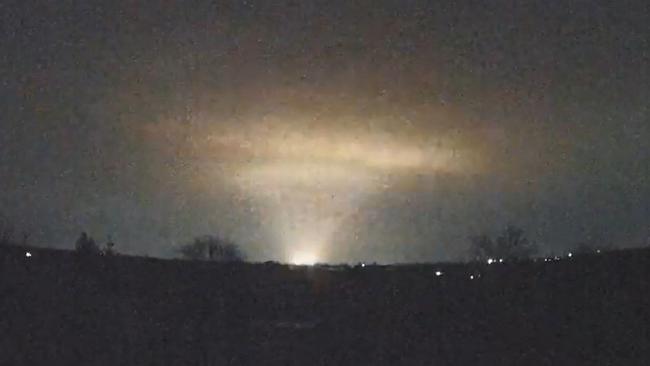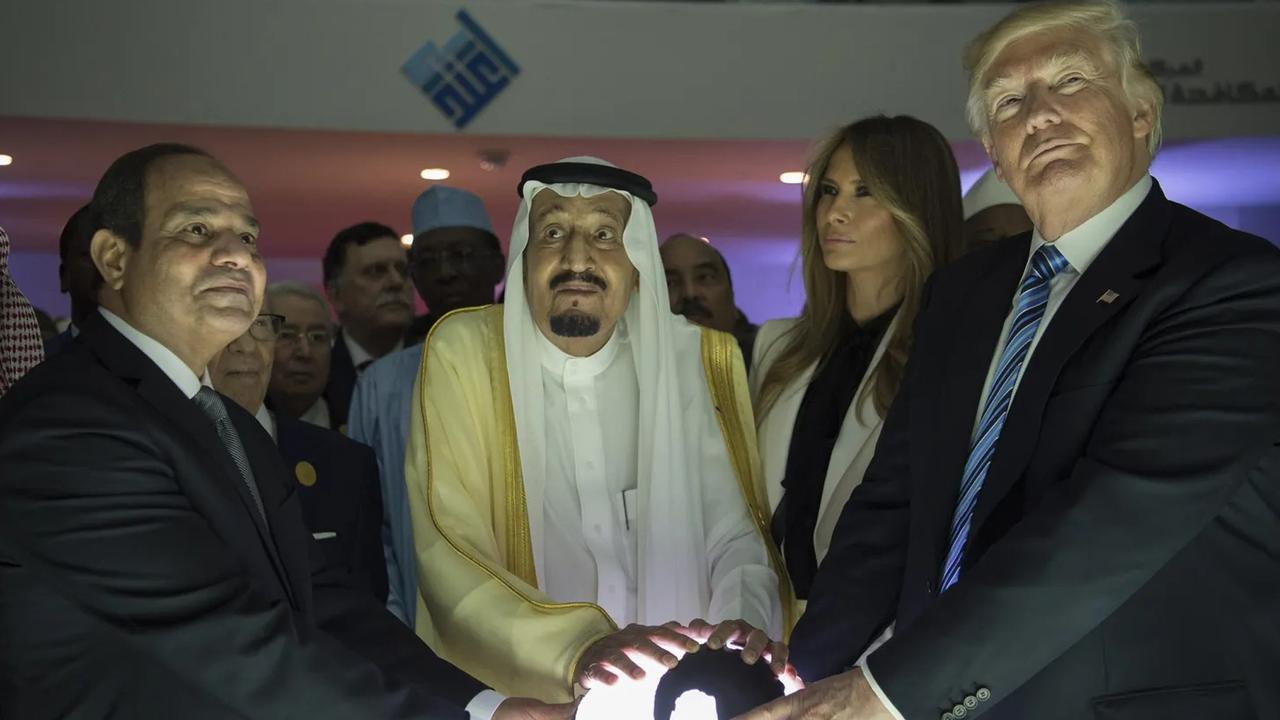Putin threat of global conflict after missile attack on Ukraine
Vladimir Putin warned of a global conflict and threatened that Moscow could carry out attacks on Britain and the US.

Vladimir Putin warned of a global conflict and threatened that Moscow could carry out attacks on Britain and the US after they allowed Ukraine to launch their long-range missiles at Russia.
In a surprise televised address to the nation, the Russian President said overnight on Thursday that his military had fired a hypersonic ballistic missile at a defence plant in Dnipro, a city in central Ukraine. He said the missile was designed to carry nuclear weapons, but that it had been armed with a conventional warhead.
Putin portrayed the attack on Dnipro as a response to the use by Ukraine this week of American ATACMS and British Storm Shadow missiles on targets in Russia’s Bryansk and Kursk regions. “From this moment on … the regional conflict in Ukraine provoked by the West acquired elements of a global nature,” he said.
The Kremlin could order strikes on countries whose weapons are used by Ukraine in Russia, Putin said. Fears of a nuclear conflict have escalated to their highest since the end of the Cold War.
“We consider ourselves entitled to use our weapons against the military facilities of those countries that allow their weapons to be used against our facilities,” he said. “In the event of an escalation of aggressive actions, we will respond just as decisively.”
Putin dismissed the idea that attacks by ATACMS and Storm Shadows would affect the war. “Our air defence systems repelled these attacks. The goals that the enemy set were not achieved,” he said.
Putin had previously warned that the use by Ukraine of Western missiles inside Russia would be equivalent to a declaration of war.
Russia’s ambassador to Britain, Andrei Kelin, said the use of Storm Shadows on Russian territory meant that Britain was “directly involved” in the conflict.
“It is not Russia but the United States that has destroyed the international security system and by continuing to fight [in Ukraine], clinging to its hegemony, is pushing the entire world towards a global conflict,” Mr Kelin said.
He claimed that Thursday’s “Oreshnik” missile was able to reach 10 times the speed of sound and could not be stopped by any missile defence systems. He suggested that Russia would launch attacks on Ukraine using the missile.
Analysts said the use of such missiles made little sense from a military point of view and that the attack was likely to have been an attempt to force the West to drop its support for Kyiv.
Nick Brown, director of the British defence analyst Janes, said: “This is really about sending an escalatory message or warning, an expensive and potentially dangerous way for Russia to rattle its sabre.”
The Ukrainian air force initially claimed that Moscow had fired an intercontinental ballistic missile (ICBM), a weapon that can carry conventional and nuclear warheads, at Dnipro. President Volodymyr Zelensky said the missile strike had “all the characteristics” of an ICBM attack and accused the Kremlin of “using Ukraine as a testing ground”.
ICBMs were created by the US and the Soviet Union during the 1950s to destroy each other’s cities in the event of a nuclear war. They have never been used in conflict.
But Western officials rejected the Ukrainian claim. A spokesman for Downing Street said that Russia had launched a ballistic missile with “a range of several thousand kilometres”. He said this was the first time that Russia had used such a missile since the start of its invasion.
A spokesman for UN secretary-general Antonio Guterres, said the use by Russia of an apparent new missile was a “worrying development” and one that indicated the war was “going in the wrong direction”.
Kyiv urged the world to condemn Russia. “We call on the international community and every leader, every state that respects the UN charter to right now, immediately to react to the use by Russia of a new type of weaponry,” the Ukrainian foreign ministry said.
Hardliners in Moscow were urging Putin to carry out a demonstrative nuclear strike to force the West into abandoning its support for Ukraine. Sergey Karaganov, chairman of Russia’s influential Council on Foreign and Defence Policy, said last year that a nuclear attack on a European city would “sober up” Moscow’s enemies.
Putin’s warning came after a report claimed that the Russian leader had not been seen in public since November 7, when he congratulated Mr Trump on his return to the White House.
Farida Rustamova, a Russian opposition journalist who has high-level sources in Moscow, said the Kremlin had been using previously recorded videos to make it appear that Putin was at work in Moscow as usual.
She cited comments made by officials in the videos that appeared to be out-of-sync with events or referred to future plans for a budget reading that had already taken place.
“Where Putin is in these troubled days, when the war with Ukraine is entering a new round of escalation, and what he is doing, only his security team and a narrow circle of close associates appear to know,” she said.
The Times



To join the conversation, please log in. Don't have an account? Register
Join the conversation, you are commenting as Logout